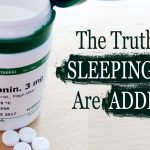What are Alcohol Withdrawals?
Alcohol withdrawals are the physical and psychological symptoms associated with quitting excessive alcohol use. The withdrawal symptoms can be felt within two hours of stopping chronic alcohol use—whether that be weeks or years of drinking. Quitting alcohol abuse can be a life threatening experience as your body has developed a dependency on the substance. Since alcohol is a sedative, the symptoms of withdrawal are often manifestations of the body in overdrive because its balance has been disrupted.
In extreme cases, people who quit cold turkey will have lethal seizures. In light of this, it is crucial for a person who has been a chronic drinker to look into a medically supervised detox. Without it, they could lose their life.
What Causes Alcohol Withdrawals?
When someone drinks heavily, they are altering the neurotransmitters in their brain. Neurotransmitters are chemicals in the brain that communicate messages to its different parts. When someone first starts drinking alcohol, the neurotransmitter GABA—which produces feelings of relaxation and calm—is enhanced. After continued, chronic use, however, it will take more and more of the substance to create the desired effect. Alcohol abuse also impacts the abuser’s glutamate levels, which are responsible for storing memory. In order for the brain to maintain a balance in the presence of alcohol, the glutamate has to function at a far higher level than it does in moderate or non-drinkers.
When an alcoholic quits drinking, the neurotransmitters that were previously suppressed by consumption attempt to return to normalcy. This process usually results in hyper-excitability, which is characterized by tremors, seizures and irritability. These are the exact opposite symptoms that are associated with drinking. The severity of withdrawal symptoms is determined by the amount and frequency of use.
What’s the Withdrawal Process Like?
The withdrawal process is different for every person depending on their abuse. In some cases, acute withdrawal symptoms are experienced 6 to 12 hours after the person stops drinking. Some of the minor symptoms include: shaky hands, sweating, anxiety, vomiting, insomnia, and headache. After these initial symptoms happen, a wave of hallucinations may come over the person, which will be either visual, auditory or tactile. The seizures, if they happen, usually occur within 24 to 48 hours after a person has stopped drinking. According to the University of Maryland Medical Center, 90 to 95 percent of alcohol abusers experience mild to moderate withdrawals and out of those, 15 to 20 experience seizure or hallucinations.
Another serious symptom of alcohol withdrawal is delirium tremens also known as DT. DT involves mental confusion and sympathetic overdrive, which can lead to cardiovascular collapse. This is the most life threatening stage. But, most of these symptoms can be avoided completely or alleviated through medication and medical supervision.
How to Alleviate the Withdrawal Symptoms
The best way for someone to alleviate the painful and life-threatening symptoms associated with withdrawing from severe alcohol abuse is to take medication and receive medical supervision in a treatment facility. In the facility, they will often prescribe various medications to help relax the body while it is going through the detox process. They will also monitor your vital signs to make sure the process is going smoothly.
Some of the medications that the staff might prescribe are benzodiazepines, adrenergic medications and anti-seizure medications. Benzodiazepines are sedatives that are generally prescribed to treat anxiety, insomnia and seizures. They are the most used medication to treat alcohol withdrawals. Adrenergic medications target the adrenergic receptors, which are proteins on the surface of nerve cells. They help regulate the nervous system and subside the negative symptoms of alcohol withdrawal by reducing elevated pulse and blood pressure. Last, antiseizure medications are often prescribed to people going through withdrawals since seizures are the most dangerous withdrawal symptom. Trying to withdraw on your own isn’t suggested because of the severity and life-threatening nature of withdrawal symptoms.
It should be remembered that people who abuse alcohol suffer from a disease and not from poor morals. “At its core, addiction isn’t just a social problem or a moral problem or a criminal problem. It’s a brain problem whose behaviors manifest in all these other areas,” said Dr. Michael Miller, former president of the American Society of Addiction Medicine. “Many behaviors driven by addiction are real problems and sometimes criminal acts. But the disease is about brains, not drugs. It’s about underlying neurology, not outward actions.”
When someone makes the decision to quit drinking, they are making a very brave choice as the withdrawal process could be life threatening without the proper observance.
Here at Better Recovery Rehabilitation Center, we offer a medically managed withdrawal process. We use medications in order to minimize the symptoms of withdrawal during your detox period. You are monitored by around the clock staff to ensure your detox is as safe and comfortable as possible. During your stabilization period you will be in a luxurious and spacious house with a maximum of 9 other clients with you. It can be difficult to admit to yourself that you have a drinking problem. While you are struggling with this idea, your family and loved ones are well aware of your problem. It’s an unfortunate side effect of alcohol dependency that we tend to hurt the ones who love us the most. Don’t wait any longer to get the help you need and deserve. Call us today at (520) 288-8484 and begin your new life.











